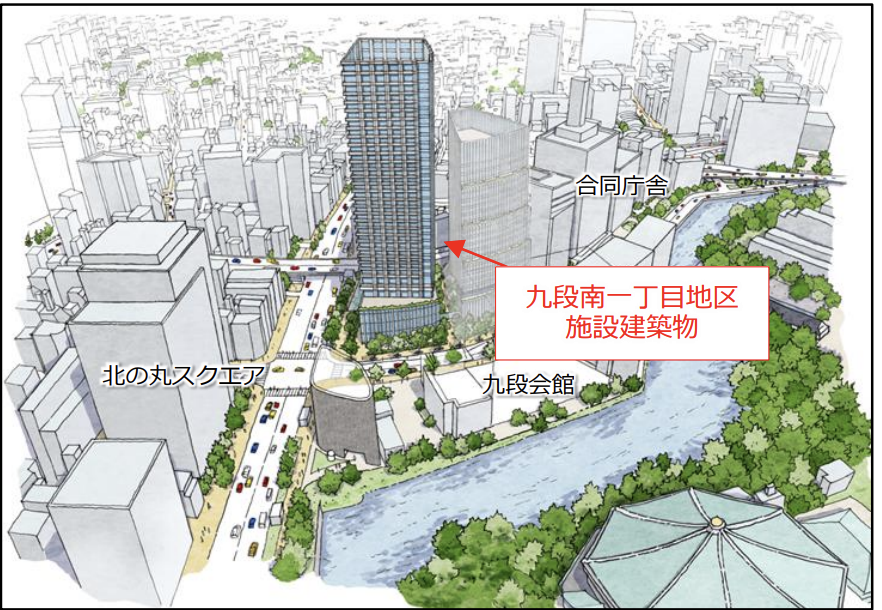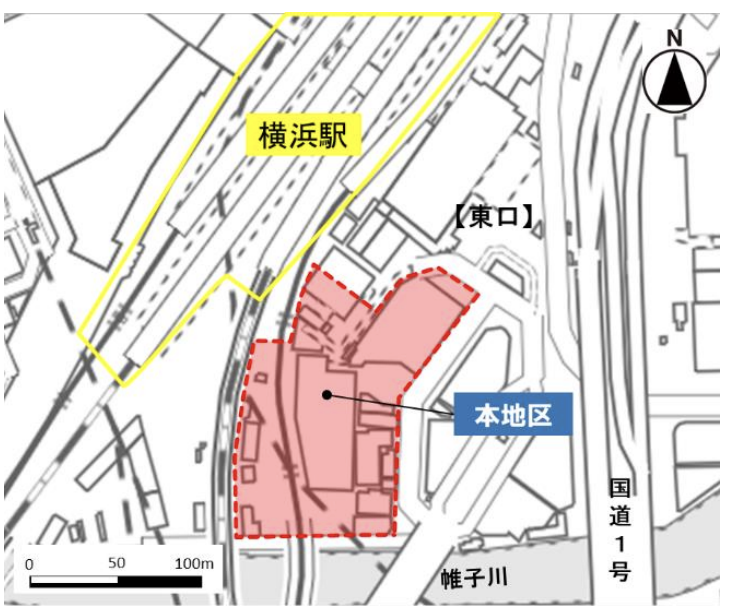We often hear comments such as, "It's too early to be investing in real estate in one's 20s," or "I don't have enough experience and knowledge yet. However, the latest survey data shows that about half (49.5%) of those in their 20s actually have a good impression of real estate investment, up 2.7 percentage points from last year.
As INA & Associates, Inc., I have had the opportunity to speak with numerous investors. I am convinced that the best time to start investing in real estate is when you are in your 20s.
In this article, based on the latest data on real estate investment in one's 20s, I will provide specific methodologies for the younger generation to succeed in real estate investment. From risk avoidance measures learned from failed cases, to the five rules for success, to practical investment strategies, we will provide comprehensive information to help people in their 20s start real estate investment with peace of mind.
Current status and data analysis of real estate investment by 20-somethings
Actual status of investment funds
According to a survey of experienced real estate investors in their 20s and 30s, about half purchased investment real estate with less than 3 million yen in personal funds. This result indicates that many people are starting real estate investment with much less funds than they imagine.
What is even more interesting is that about 70% of those with investment experience say that they are earning the desired rental income and gains on the sale of real estate. This confirms that with the proper knowledge and strategy, one can be successful even in one's 20s.
Relationship between Annual Income and Start of Investment
According to the 2024 Basic Survey on Wage Structure by the Ministry of Health, Labor and Welfare, the average wage in one's early 20s is 232,000 yen, but this rises to 372,000 yen in one's late 40s. Anticipating this future increase in income, more and more people are starting to invest in real estate while still in their 20s.
However, whether or not annual income exceeds 12 million yen is an important criterion for real estate investment in one's 20s. If your annual income is less than 12 million yen, investing in a condominium unit is a realistic option, but you can still expect adequate returns.
Five Advantages of Starting Real Estate Investment in Your 20s
1. Maximize the compounding effect of a long-term investment period
The biggest advantage of starting real estate investment in one's 20s is the long investment period. For example, if you start investing at the age of 25, you can earn income for as long as 40 years until the age of 65. This long period of time is extremely important to take full advantage of the compounding effect.
If you receive rental income of ¥100,000 per month, your income will be ¥48 million over 40 years. Furthermore, by reinvesting this income, the speed of asset growth will increase at an accelerated rate, giving investors in their 20s an overwhelming advantage over those starting out in their 40s or 50s.
2. Age Characteristics that Make it Easier to Obtain Financing
When financial institutions evaluate loans, investors in their 20s are evaluated based on their future potential. Even if their current annual income is relatively low, financial institutions are willing to consider them for loans because of the prospect of increased income in the future.
In particular, borrowers in their 20s who work for major companies or are government employees tend to have more favorable loan terms because they can expect a stable future income. In addition, longer repayment terms allow for lower monthly repayments and improved cash flow.
3. Effect as a substitute for life insurance
Group credit life insurance is attached to real estate investment loans. By starting real estate investment in your 20s, you can enjoy its function as life insurance for a long period of time.
Compared to traditional life insurance, real estate investment kills two birds with one stone, as it offers both an insurance function and a return on investment. Especially for those in their 20s who are about to get married or have children, this insurance function is a great source of peace of mind.
4. Maximize tax-saving effects
In real estate investment, depreciation of buildings can be recorded as an expense. Especially in the case of a wooden apartment building, a large depreciation can be taken because the legal life of the building is only 22 years.
Those in their 20s can expect their annual income to rise and their tax rates to increase in the future. By starting real estate investment at an early stage, you can take advantage of significant tax savings at a time when higher tax rates apply. Income and inhabitant tax savings are important factors that can significantly increase the rate of return on investment.
5. Recovery Time from Failure
Investing always involves risk. However, having ample time to recover from a failure in one's 20s is a major advantage; a major failure in one's 40s or 50s is difficult to recover from, but can be recovered from in one's 20s.
This time margin allows investors in their 20s to aggressively take on challenges. Not acting out of fear of failure is a greater opportunity loss in the long run. Gaining experience while you are young will help you make better investment decisions.
Common mistakes and countermeasures for real estate investment in one's 20s
Mistakes in property selection due to lack of knowledge
The most common mistake in real estate investment in one's 20s is the wrong property selection due to lack of knowledge. Cases frequently occur where people are attracted by the high surface yield and purchase a property without fully examining the location and condition of the building.
For example, there have been cases where a high-yielding property in a rural area was purchased, but ultimately suffered significant losses due to continued vacancies caused by a declining population. There have also been many cases where a company purchased an old property at a low price, but repair costs were higher than expected, resulting in a deterioration of income and expenditures.
Countermeasure: When selecting a property, it is important to focus on location rather than yield. Selecting a location with future potential, such as within a 10-minute walk from a train station, in an area with a growing population, or in an area slated for redevelopment, will ensure a stable income over the long term.
The Trap of Investing in a Newly Built Studio Apartment
Many investors in their 20s make the mistake of investing in newly built studio apartments. There is no end to the number of cases in which investors are misled by salespeople's slick sales talk and end up purchasing properties that do not generate a profit.
Since the purchase price of a newly built studio apartment is set high, the rental income alone cannot cover the loan repayment, and it is common to have to take out several tens of thousands of yen every month. There have been cases of annual deficits of 240,000 yen.
Countermeasure: By considering a used property that is 5 to 15 years old instead of a newly built property, the purchase price can be reduced and income and expenditures can be improved. It is also important to collect information from multiple real estate companies and make an objective decision.
Deterioration of cash flow due to excessive borrowing
Many investors in their 20s take out loans that are not suitable for their size in anticipation of future income growth. Taking out a full loan or borrowing excessively for their annual income significantly reduces their resistance to rising interest rates and vacancy risk.
Countermeasure: The borrowing ratio should be 70-80% of the property price, and it is important to secure a certain amount of personal funds. In addition, always keep a reserve fund of about three months' worth of loan repayments to cover unexpected expenses.
Comparative Table of Failure Patterns and Countermeasures
| Failure Patterns | Specific cases | Countermeasure | Expected Effects |
|---|---|---|---|
| Property selection error due to insufficient knowledge | Vacancy risk of local high-yield properties | Selection of property with emphasis on location | Securing stable occupancy rate |
| Investing in a newly built studio | Taking out tens of thousands of yen every month | Investment in used properties | Improvement of income and expenditure |
| Excessive borrowing | Difficulty in repayment when interest rates rise | Maintain 70-80% borrowing ratio | Improvement of risk tolerance |
| Mistake in management company selection | Insufficient tenant recruiting ability | Comparative study of multiple companies | Shortening of vacancy period |
Laws of Successful Real Estate Investment for 20-somethings without Failure
Rule 1: Start investing with an annual income of at least 5 million yen
In real estate investment in one's 20s, an annual income of 5 million yen is one important guideline. By reaching this income level, it will be easier to obtain financing from financial institutions, and you will also have the financial leeway to invest.
Although it is possible to invest with an annual income of less than 5 million yen, the range of properties you can choose from is limited, and risk management becomes more difficult. We recommend that you first focus on advancing your career in your main job and build a stable income base before starting to invest.
Law 2: Prepare an initial cost of 1 million yen plus 3 months' worth of loan repayments
When starting a real estate investment, you will need to have an initial capital of about 1 million yen. This includes the costs of purchasing the property (registration fees, brokerage commissions, fire insurance premiums, etc.).
In addition, it is important to set aside three months' worth of loan repayments as a reserve fund in case of unexpected expenses. This fund will allow you to deal with periods of vacancy and unexpected repair costs and ensure stable investment operations.
Law 3: Property Selection Focusing on Location
It is no exaggeration to say that 80% of a successful real estate investment is determined by location selection. 20-something investors tend to be attracted by high yields, but it is important to evaluate the location from a long-term perspective.
The following factors should be emphasized as criteria for a prime location:
- Within a 10-minute walk from the nearest train station
- Area with a growing or maintained population
- Areas with an abundance of commercial and medical facilities
- Area with redevelopment plans
- No universities or companies planning to relocate
Law 4: Select a Reliable Management Company
An excellent management company is essential to a successful real estate investment. The ability of the management company will greatly affect occupancy rates and rent levels.
When selecting a management company, check the following points
- Track record and reputation in the community
- Ability to recruit tenants (short vacancy period)
- Reasonableness of management fees
- Promptness and politeness of response
- Financial soundness
Law 5: Gradual Investment Expansion
It is important for investors in their 20s to expand the size of their investment in stages. Start with one unit at first and gradually increase the number of properties as you gain experience.
The timing for investment expansion is when the following conditions are met
- Management of existing properties is stable
- Sufficient personal funds have been accumulated
- Knowledge and experience in real estate investment have improved.
- The market environment is favorable.
Recommended real estate investment strategies for people in their 20s
Start with condominium unit investment
For beginners in their 20s, we recommend starting with condominium investments. Compared to a single building, the investment amount is smaller and management is less time-consuming, making it easier to manage with your main job.
When investing in condominium units, please keep the following points in mind
- The building should be less than 15 years old.
- Choose an exclusive area of 25 square meters or more.
- Check the operation of the management association.
- Check the status of the reserve fund for repairs.
Use of Used Properties
Compared to newly built properties, used properties are less expensive and offer higher yields. In particular, properties that are 5 to 15 years old are in good condition and offer a good balance between price and profitability.
Key points in selecting an existing property:
- Check the timing of major repairs
- Check the status of updated facilities
- Investigate rental demand in the surrounding area
- Evaluate future asset value
Income-producing properties in local cities
Property prices in major metropolitan areas such as Tokyo and Osaka are high and may be out of reach for investors in their 20s. Therefore, we would like to focus on income-producing properties in regional cities.
Advantages of investing in regional cities:
- Relatively low property prices
- High yields
- Less competition
- Localized management is possible.
However, there are also disadvantages such as population decline risk and low liquidity, so careful consideration is required.
Comparative Table of Investment Strategies
| Investment Strategy | Initial Investment | Expected Yield | Risk Level | Management effort | Suitability for 20s |
|---|---|---|---|---|---|
| Condominium (urban area) | 10-30 million yen | 3-5% of the total | Low | Low | ★★★★★ |
| Condominiums (regional) | 5-15 million yen | 5~8 | Medium | Small | ★★★★☆ |
| One-unit apartment (urban area) | 50 million yen and up | 4~6 | Medium | Many | Single-unit apartments (urban area) |
| Single-unit apartments (local area) | 20-50 million yen | 6~10 | High | Many | High |
Conclusion
Investing in real estate in your 20s is never too early. Rather, there are many advantages, including the compounding effect of a long investment period, ease of obtaining financing, and time to recover from failure.
For success, it is important to follow the following five rules:
- Start investing with an annual income of at least 5 million yen
- Prepare 1 million yen initial cost plus 3 months of loan repayments
- Select a property with an emphasis on location
- Selection of a reliable management company
- Step-by-step expansion of investment
Risks can also be minimized by learning from failed cases and avoiding insufficient knowledge and excessive borrowing.
With the right knowledge and strategy, real estate investment is an investment technique that can be successful even for those in their 20s. However, it is difficult to make all decisions on your own. We recommend that you proceed with your investment with caution and with the advice of a trusted professional.
INA&Associates Inc. provides full support for real estate investment for people in their 20s. We also offer individual consultations, so if you are interested in real estate investment, please feel free to contact us. Why not take your first step toward asset building with us?
Frequently Asked Questions
Q1:Is it really too early to invest in real estate in my 20s?
A:It is never too early. In fact, your 20's is the best time to start real estate investment. There are many advantages, including the compounding effect of a long-term investment period, ease of obtaining financing, and time to recover from mistakes. According to the latest survey, about half of the respondents in their 20s have a good impression of real estate investment, and there are many investors who have actually succeeded.
Q2:How much annual income can I start real estate investment?
A:One guideline is an annual income of 5 million yen. By reaching this level, it will be easier to obtain financing from financial institutions, and you will have the financial leeway to invest. However, while it is possible to invest with an annual income of less than 5 million yen, the range of properties you can choose from is limited, so we recommend that you first focus on improving your career in your main job.
Q3:How much initial cost is required?
A:You will need about 1,000,000 yen in personal funds for initial expenses. This includes various expenses for purchasing the property (registration fees, brokerage fees, fire insurance premiums, etc.). In addition, it is important to set aside three months' worth of loan repayments as a reserve fund in case of unexpected expenses.
Q4:What is the risk of failure?
A:The risks of real estate investment can be greatly reduced with proper knowledge and strategy. Even in the worst case scenario, losses can be limited by selling the property; a major advantage of being in your 20s is that you have plenty of time to recover from mistakes. Not acting out of fear of risk is a greater opportunity loss in the long run.
Q5:What type of property should I start with?
A:For beginners in their 20s, we recommend starting with a condominium investment. It is important to choose an existing property that is 5-15 years old and located within a 10-minute walk from a station. The advantage is that the investment amount is relatively small and the management effort is reduced, making it easy to balance work with your main job.

Daisuke Inazawa
Representative Director of INA&Associates Inc. Based in Osaka, Tokyo, and Kanagawa, he is engaged in real estate sales, leasing, and management. He provides services based on his extensive experience in the real estate industry. Based on the philosophy that “human resources are a company's most important asset,” he places great importance on human resource development. He continues to take on the challenge of creating sustainable corporate value.

.png)













